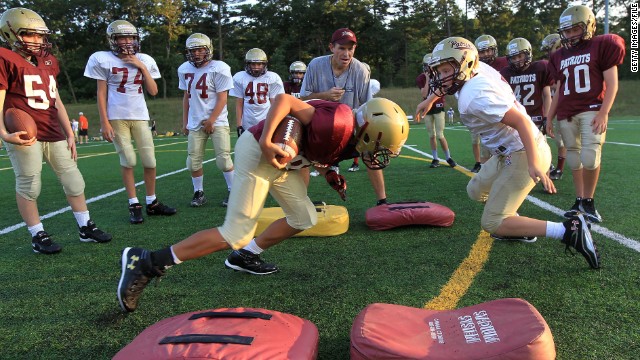What are some things to clear up before kids hit the fields this fall?
One myth is that if an athlete hasn't blacked out or lost consciousness, they haven't suffered a concussion.
In only about 10 percent of concussion cases does the person lose consciousness. Just because a young athlete doesn't black out does not mean that their brain has not been injured. Symptoms may include headaches, a sensation of pressure in the head, dizziness, nausea as well as mood changes, sleep disruption or loss of memory. In the article on our ParentMap website, we have more information on symptoms.
People often believe that if a child suffers a concussion, adults will know immediately.
In fact, symptoms can take minutes, hours, even a couple of days to develop. This is why it is so critical for an athlete to be benched until they can be evaluated by a certified trainer or medical professional.
Most tragedies due to concussions are preventable as long as the athlete is not exposed to further head trauma. After a bad first hit, a second hit, even if smaller in force, can have catastrophic results such as second-impact syndrome.
Sanctioned football practices started last week, and that's what we always focus on, but are football players the only ones who need to know about the signs of concussions?
No, that's another thing to dispel. While football has the highest rate of concussion, lacrosse and hockey have high numbers -- and so do girls' soccer, lacrosse and basketball. It's not just a boy thing.
In fact, in sports where the rules of contact are the same for girls and boys, such as soccer and basketball, girls have higher rates of concussion. There are differing theories for why this is, but no definitive research to explain it.
We hear about companies making safer helmets. Do they make a difference?
No. As the University of Washington/Harborview Medical Center doctors in the Seattle Sports Concussion program will tell you over and over again, there is no such thing as a helmet that prevents concussions. Helmets can prevent skull fractures, but compare a mild traumatic brain injury to shaking Jello inside a Tupperware container. Nothing on the outside of the skull can prevent the brain inside from slamming into the hard bones of the skull.
If an adult isn't sure if a child has suffered a concussion, is it better to be safe than sorry and have them sit out?
Yes. In fact, with the Lystedt Law that's been in effect four years now, coaches who even suspect a child has suffered a concussion must pull the athlete until they get properly evaluated by a medical professional. And they have to get medical approval before returning to play. That too is key, because if their brain has not healed and they get hit again, that can be catastrophic.
Before they return to play, are they fine to go about as long as they're not doing the sport?
No, mental rest is actually very important to recovery. Doctors treating concussions will say no TV, video games, test-taking or studying because that can slow the brain's healing.
Read more here

No comments:
Post a Comment